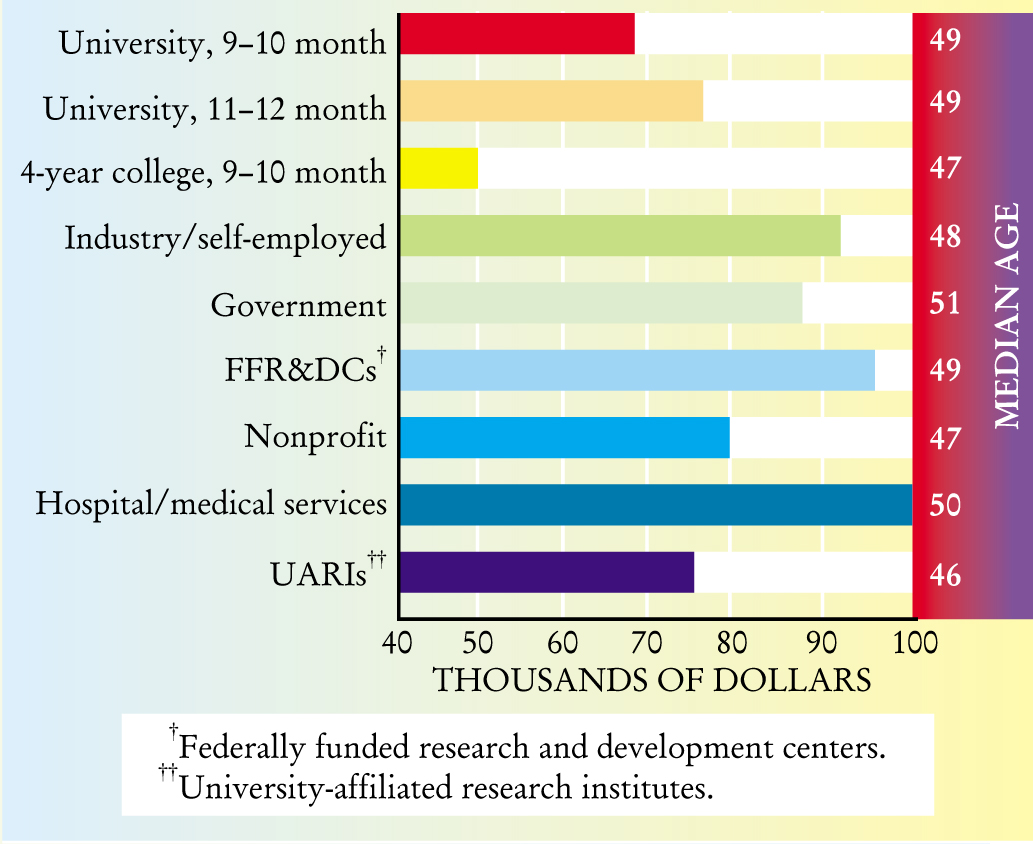Physicists’ Pay Is Up
DOI: 10.1063/1.2405668
Salary increases for US physicists are well above inflation rates, according to the latest salary survey by the American Institute of Physics. The study, which looked at the incomes of physicists who belong to any of AIP’s 10 member societies, found salaries had increased about 11% since 1998. PhD physicists earned a median salary of $78 000 last year, and those with master’s and bachelor’s degrees received median salaries of $63 800 and $60 000, respectively.
Not all PhD physicists got pay boosts, however. The median salary of those at four-year colleges, who mostly work on 9- or 10-month contracts, was $50 000 (see graph), essentially unchanged since 1998. Physicists working for federally funded R&D centers netted a $12 800, or 15%, increase over 1998.
The graph doesn’t show total income, however, because more than a third of the PhD members who work full-time earn extra wages. Supplemental sources—usually consulting, summer research, or summer teaching—add, on average, $11 000. Those on 9- or 10-month contracts at universities are most likely to do supplemental work, those in government, the least.
Unemployment remained under 1% for PhDs, although it’s slightly higher for women, who make up 14% of employed member society membership. The salaries of men and women are comparable for full-time work, except for mid-career professors on 9- or 10-month contracts. There, surprisingly, women earn 10% more than men.
For additional salary and employment information, see 2000 Salaries: Society Membership Survey. Single copies are $15 and can be ordered on the Web at https://webster.aip.org/forms.statorder.htm

Median PhD salaries by major employment sector, 2000.





